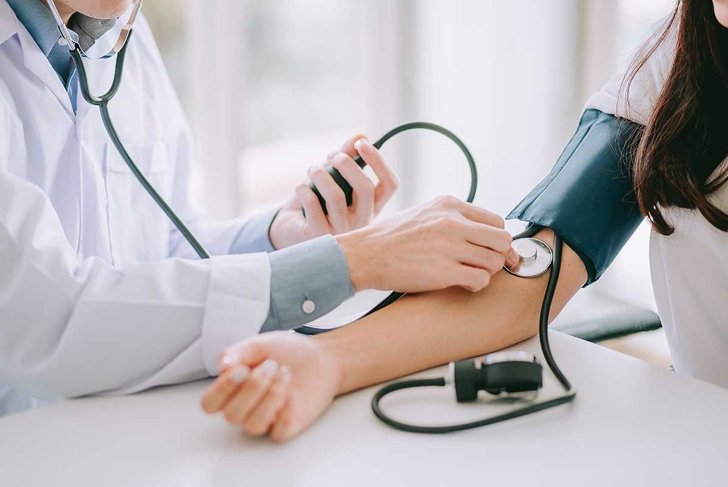
High blood pressure is known as hypertension, and it can play a role in the hardening of your arteries and increase your risk of stroke, kidney disease, heart failure, and eye problems.
While the exact causes of hypertension are unknown, there are things you can do to help lower your blood pressure if it’s high. Check out these 10 factors that contribute to high blood pressure.
01
Sedentary lifestyle

If you spend many hours of your day seated in front of a computer, watching television, or sitting in the car, you could be at risk for hypertension due to inactivity. Those who are inactive on a daily basis tend to have higher heart rates than those who lead active lives—this means their hearts work harder. However, exercising releases hormones that relax blood vessels and lower blood pressure. Regular exercise (about 30 minutes a day, a few times a week), as well as working small bits of activity into your daily routine can lower blood pressure. Even standing instead of sitting at your desk can help.
02
Stress

While we all face stress at some point, you can help reduce your risk of hypertension by making certain lifestyle choices to minimize the amount of stress you experience on a daily basis. Stressful situations can lead to a temporary rise in blood pressure, and chronic stress may contribute to hypertension, though more research is needed to fully understand its effects. Whether walking, biking, or some other form of exercise, regular physical activity is one way to help decrease stress levels and reduce your blood pressure. Try this workout to work out your stress.
03
Diet

Another lifestyle choice that can contribute to hypertension is diet. Choosing foods that are low in saturated fat, added sugars, and sodium and opting for high-fiber whole grains, fruits, vegetables, low-fat dairy, fish, poultry, nuts, and beans can help lower high blood pressure. A well-rounded and healthy diet can also help ensure you are getting enough potassium, calcium, and magnesium—nutrients that work to support healthy blood pressure. Check out these 10 foods that are particularly helpful for hypertension.
04
Too much salt
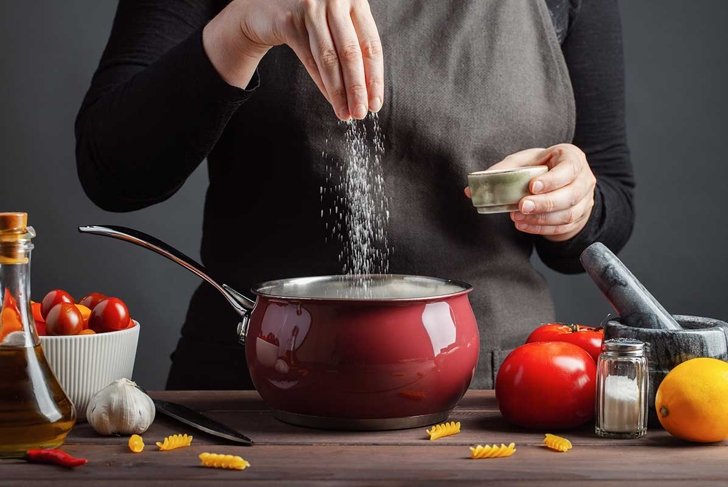
You may already be making a conscious effort to eat a diet that supports healthy blood pressure, but added salt is something that can dampen these efforts. Too much sodium causes your body to hold on to more water, increasing the volume in your bloodstream, making your heart work harder, and increasing the pressure on blood vessels—all of which can lead to hypertension. Watch out for added sodium that may be hiding in pre-made or packaged foods and be sure to go light on the salt in your own cooking. Find out more about common cooking mistakes that can derail your healthy eating efforts in this alive.com article.
For most adults, the American Heart Association recommends limiting sodium to 1,500 mg of sodium daily and no more than 2,300 mg. However, Americans consume an average of 3,400 mg each day.
05
Obesity
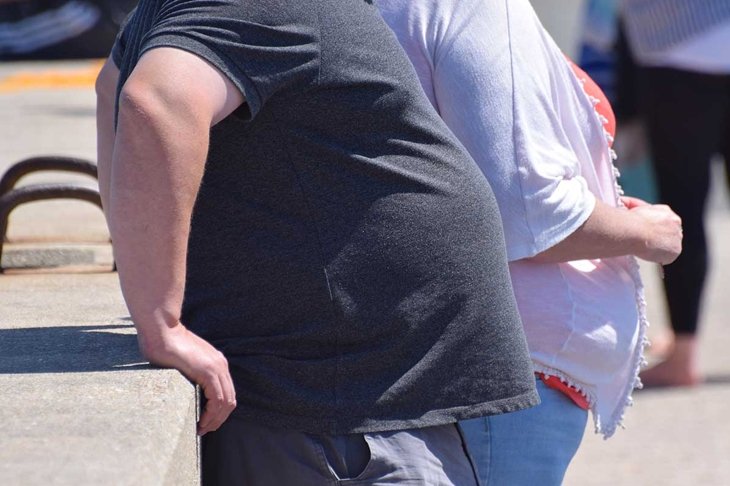
Requiring more blood to supply essential oxygen and nutrients throughout the body, obesity causes the amount of blood flowing through your vessels to increase, putting more pressure on your artery walls in the process. While obesity can be due to a complex relationship between environment, genetics, and lifestyle choices, working to get it under control can significantly lower blood pressure. You can read more about the causes of obesity and how it can be addressed in this alive.com article: “The Obesity Epidemic.”
06
Sleep apnea
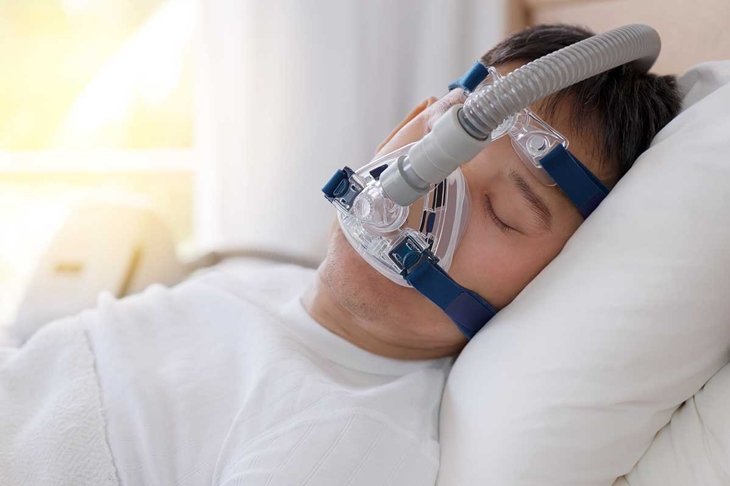
A disorder that causes breathing to repeatedly stop and start, sleep apnea causes dips in blood oxygen levels that lead to an increase in blood pressure and a higher risk of hypertension. Those who suffer from sleep apnea may snore loudly and feel tired after a full night’s sleep. If you think you may have sleep apnea, be sure to consult your doctor for treatment options. You can learn more about sleep apnea and what to do about it in this alive.com article.
07
Alcohol

While having a drink or two may help you feel a bit more relaxed, drinking more than a moderate amount of alcohol can affect your blood pressure and contribute to hypertension. Moderate alcohol consumption is considered one drink a day for women and two for men. Having more than this in one sitting can create a temporary spike in your blood pressure, and if this happens on a regular basis, you could be putting yourself at higher risk of hypertension.
08
Smoking

There are many health reasons not to smoke and reducing your risk of hypertension is one of them. Nicotine found in cigarette smoke increases heart rate, narrows arteries, increases blood pressure and the likelihood of clots, and hardens arterial walls. While you may be aware of the deleterious effects of cigarettes and excessive alcohol, sometime saying “no” can be easier said than done. Check out these six steps to help overcome addictions, including smoking and drinking. Even if you aren’t a smoker yourself, remember that secondhand smoke can put you at risk for high blood pressure as well, so try to stay clear of those that are smoking.
09
Age
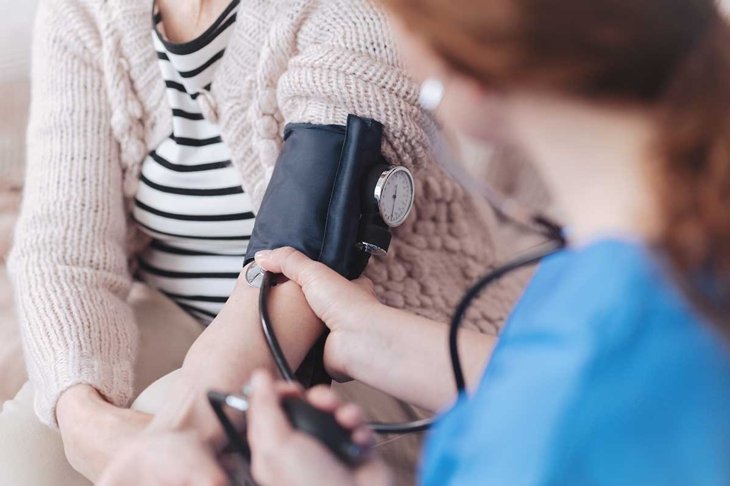
With a 90 percent chance of developing hypertension during your lifetime, particularly after the ages of 55 to 65, age plays a role in your risk of high blood pressure. While getting older is something that is out of your control, making lifestyle choices that support healthy aging and low blood pressure can help reduce your risk of hypertension and better manage hypertension if you do develop it. Be sure to ask your doctor for a blood pressure reading at least every two years after the age of 18 and every year after the age of 40 (or if you are over 18 and at a high risk for hypertension).
10
Genetics

Genetics is another hypertension risk factor that is out of your control—but this can make it all the more import to make lifestyle choices that support healthy blood pressure. If your parents have hypertension then you’re also at risk for developing the condition—particularly if both parents have it. Since hypertension often has no symptoms, monitoring your blood pressure is important. In addition to having your doctor check regularly, you can find your own blood pressure monitor online and at the pharmacy.
